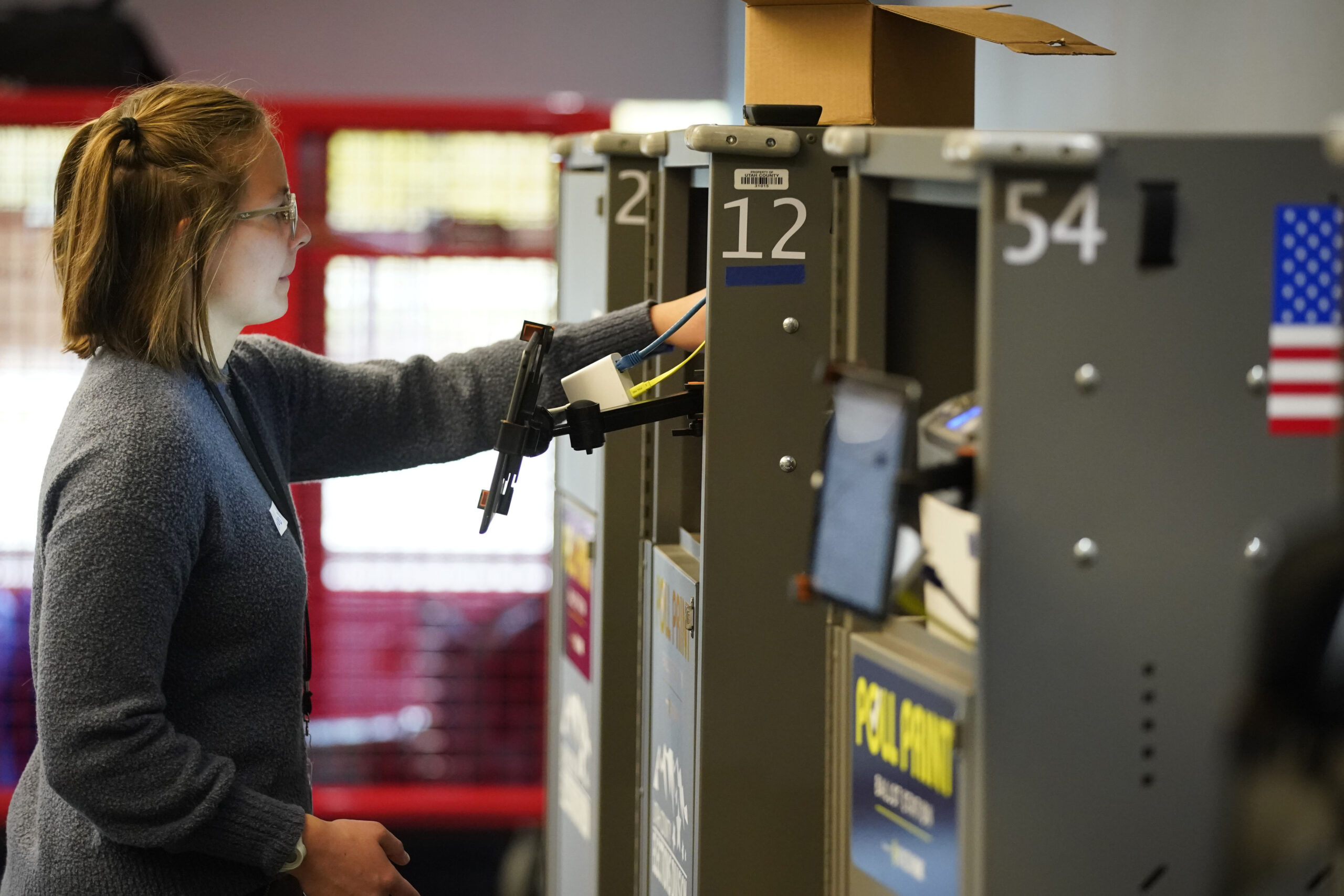Ballots hit registered voters’ mailboxes this week ahead of the June 25 primary — a key date when many of Republican-controlled Utah’s elections will get decided.
If you haven’t received a ballot, it’s not too late to register. If you did receive a ballot but are wondering why it’s missing the option to vote in high-profile contests like Gov. Spencer Cox versus Rep. Phil Lyman and all of the GOP congressional races, it’s because those races are closed Republican primaries — and only registered Republicans can weigh in.
From important deadlines to rules around party affiliation, here’s what you need to know to vote in Utah’s primary elections:
Open versus closed primaries
The point of a primary is for political parties to zero in on their official nominee for the November general election. But parties have their own rules about who can and can’t vote in their primaries.
Some parties in Utah choose to limit who votes in their party elections, or opt for a closed primary in which only those affiliated with their party can vote. Those parties with closed primaries include:
- Republican Party
- Libertarian Party
- Constitution Party
- No Labels Party
- Green Party
Others allow any voter, regardless of party affiliation, to weigh in. Those with open primaries in the state include:
- Democratic Party
- Independent American Party
- United Utah Party
- Utah Forward Party
However, only the Democratic and Republican parties have multiple candidates competing for their nominations, so they are the only parties participating in the June 25 primary. Other parties have already chosen their general election candidates.
Republicans are losing trust in elections, even in Utah. What should be done?
Since the Democratic Party allows an open primary, unaffiliated voters or members of other parties can choose to vote in the race, but they won’t automatically receive a Democratic Party ballot. To do so, they must request a Democratic ballot from their county clerk. Salt Lake County, for example, has an option to request an open primary ballot on its elections website.
As for the Republican Party’s closed primary, the rules are more restrictive. For voters who are currently a member of another party, the deadline to change party affiliation and register with the GOP came and went in January — but unaffiliated voters still have a bit of time (until June 14) to register with the party and receive a Republican ballot, if they wish.
In an effort to specifically prevent “party raiding” (or other party members switching their party affiliation to vote in a closed primary), the GOP-majority Utah Legislature passed a bill in 2021 to move up the deadline to change parties and cut off the ability for Utah voters to switch their party affiliation months before primary elections.
That 2021 bill initially set a deadline for March 31, but two years later, the 2023 Utah Legislature moved it up in presidential election years to be the day after the declaration of candidacy filing period ends. This year, that deadline fell on Jan. 9.
So if you’re already a member of another party, it’s far too late to register as a Republican and vote in the party’s June 25 primary.
However, if you’re currently not a member of a party (unaffiliated), or not currently registered to vote, you still have time.
To vote in a closed primary like the Republican Party’s, you have until June 14 to register and receive a mail-in ballot. Unregistered or unaffiliated voters can also register or affiliate with a party at an in-person polling location on Election Day.
Important deadlines
June 4: Vote-by-mail ballots mailed to voters.
June 11 – June 21: Early in-person voting available at vote centers. Visit your county clerk’s website for information about locations.
June 14 by 5 p.m.: Last day to register to vote or affiliate with a party to vote in the June 25 primary (though same-day voter registration is available in person leading up to and on Election Day).
June 18: Last day to request a by-mail ballot for the June 25 primary.
June 21: In-person early voting period ends.
June 24: Last day ballots can be postmarked and sent back to county clerks by mail. Voters can still drop off their ballots at ballot drop boxes up until polls close at 8 p.m. on Election Day.
June 25: Primary Election Day.
Races to watch
Your 2024 primary ballot will have a variety of local, statewide and congressional races (depending on your party affiliation, of course).
Utah’s election website has a comprehensive list of all the candidates that have qualified for the June 25 primary ballot, after parties narrowed their field of candidates during their nominating conventions held in April.
Here’s a breakdown of the high-profile primary contests to watch. The winners will advance to compete in the Nov. 5 general election.
Utah’s primary election stage is set: Lyman vs. Cox, the race for Romney’s seat and more
Governor (Republican): Utah Gov. Spencer Cox versus Rep. Phil Lyman.
Sen. Mitt Romney’s open U.S. Senate seat (Republican): Riverton Mayor Trent Staggs, Rep. John Curtis, former House Speaker Brad Wilson, and Jason Walton.
Congressional District 1 (Republican): Rep. Blake Moore versus Paul Miller.
Congressional District 2 (Republican): Rep. Celeste Maloy versus Colby Jenkins.
Congressional District 3 (Republican): Sen. Mike Kennedy, Utah Auditor John Dougall, Case Lawrence, JR Bird and Stewart Peay.
Attorney General (Republican): Frank Mylar, Rachel Terry and Derek Brown.
State Auditor (Republican): Tina Cannon versus Weber County Clerk/Auditor Ricky Hatch.
For more information about how to vote or for answers to frequently asked questions, visit Utah’s election website at vote.utah.gov. Contact your county clerk for any questions specific to your area.
If you haven’t already, register to vote online here.
